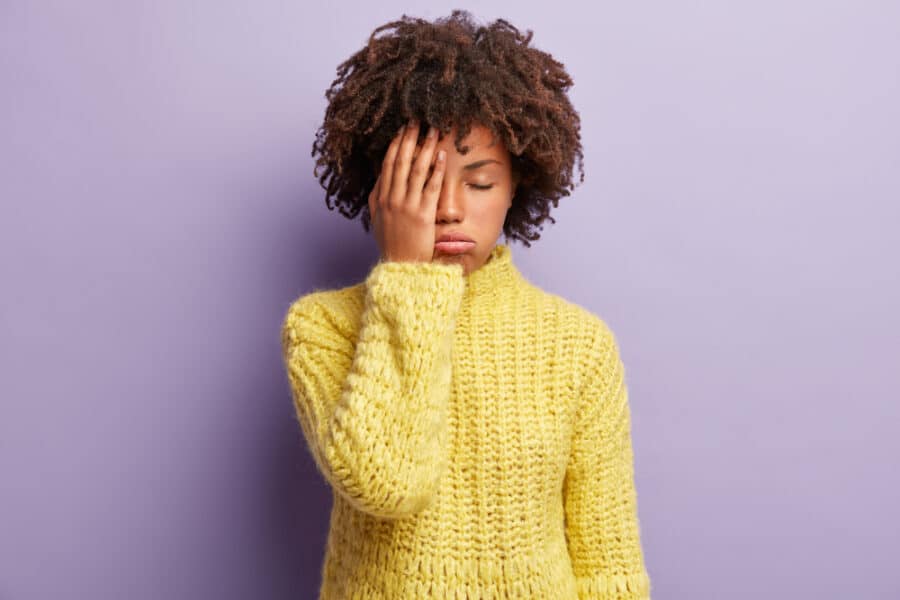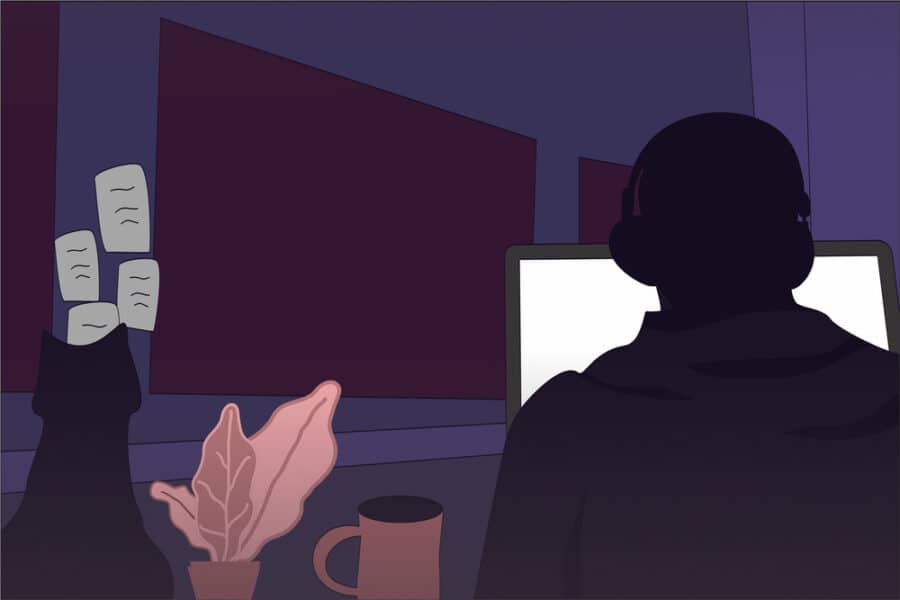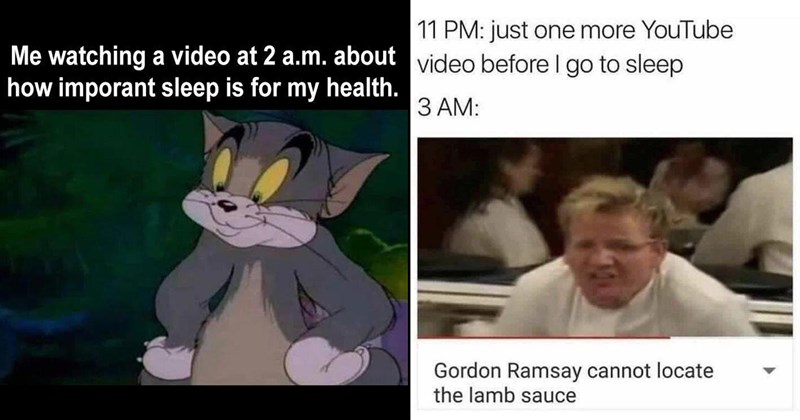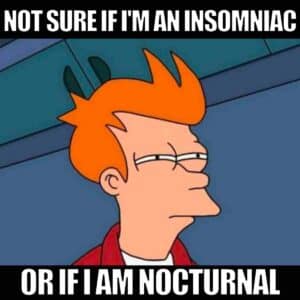
Insomniac Meaning: Lets explore the insomniac definition
Insomniac Meaning
Insomnia is a sleep disorder that affects many people around the world. It can be caused by various factors, including stress, anxiety, and medication. Insomnia can make it difficult to fall asleep and stay asleep. People affected by insomnia often feel tired and irritable during the day. Several treatments are available for insomnia, including medication, therapy, and lifestyle changes.
Insomnia vs Insomniac
Insomnia is “a condition in which a person has difficulty falling asleep or staying asleep,” while an insomniac is “a person who suffers from insomnia.” So, what’s the difference between insomnia and being an insomniac?
For starters, anyone can be an insomniac. Insomnia is a condition, not a person. You can have insomnia for a night, or insomnia can be chronic.
On the other hand, an insomniac is someone who lives with insomnia. They may have difficulty falling asleep often, waking up frequently at night, and returning to sleep.
There are a few different types of insomnia, but the most common is acute insomnia. This type of insomnia is usually caused by stress and can last a few days to a few weeks. If you have had difficulty sleeping for over a month, you may have chronic insomnia.
There are many treatments for insomnia, but it is essential to speak with a doctor to find the best option. Some people may need medication to help them sleep, while others may only need lifestyle changes.
Historical Usage of the Insomniacs – Define Insomniac

The definition of the word “insomniac” has been around for centuries. It was first used in the late 1500s when it referred to a person who could not sleep. The word comes from the Latin word “insomnia,” which means “without sleep.” In the early 1800s, the word began to be used more broadly to refer to people who had difficulty sleeping. It was not until the late 1800s that the word began to be used more specifically to refer to people who had difficulty falling asleep.
The word “insomniac” is often used when someone has difficulty sleeping. However, there are different types of insomnia. Some people have trouble falling asleep. Others have trouble staying asleep. And still, others wake up too early in the morning.
There are many reasons why people may have difficulty sleeping. Some people have medical conditions that make it difficult to sleep. Others have psychological conditions that make it difficult to sleep. And still, others have environmental factors that make it difficult to sleep.
Where does insomniac come from?
The word insomnia is derived from the Latin in- (“not”) and somnus (“sleep”). The condition of sleeplessness has been known since ancient times. The Roman naturalist Pliny the Elder (A.D. 23–79) wrote that “there are some who never sleeps.”
The first use of insomnia in English is found in work by the English physician Thomas Willis (1621–75), who described a symptom of brain disorders. The word was not used again in print until the early 19th century, when it began to be used more frequently. By the middle of the century, it was used in its modern sense of “recurrent sleeplessness.”
What are the causes of insomnia?
There are many different causes of insomnia. Some people may have difficulty falling asleep because of stress or anxiety. Others may have trouble staying asleep because of medical conditions such as restless leg syndrome or sleep apnea.
Some medications can cause insomnia. If you think your medication is causing insomnia, talk to your doctor about changing your dosage or switching to a different medication.
How is insomniac used in real life?

When you go to sleep, nothing happens. You don’t usually dream; when you do, the dreams are often hazy or forgettable. Insomniacs have difficulty falling asleep and may wake up several times during the night. They often feel exhausted when they wake up in the morning.
There are many causes of insomnia, including stress, anxiety, depression, medications, and medical conditions. Insomnia can also be a symptom of another sleep disorder, such as sleep apnea.
There are two types of insomnia: primary and secondary.
Primary insomnia is when another condition does not cause sleeplessness. It’s often due to stress or lifestyle changes.
Secondary insomnia is when sleeplessness is caused by another condition, such as depression, anxiety, or sleep apnea.
Insomniac Memes
Insomniac memes are a great way to express the struggle of being unable to sleep. They are often relatable and funny and provide some comfort to those who are struggling with insomnia. Some popular insomniac memes include the “I can’t sleep” and the “why can’t I sleep” meme. These memes often feature characters struggling to sleep and provide a comical look at the struggles of insomnia.
If you’re like me, you’ve probably seen at least a few Insomniac memes floating around the internet. Check out these funny insomnia memes!



Insomnia Quote
Take a look at these famous insomnia quotes on the internet.
1. ““Sleep is the best meditation.” – Dalai Lama
2. “There is no beautifier of complexion, or form, or behavior, like a good night’s sleep.” – Joseph Addison
3. “The best way to conquer insomnia is to get up early.” – Zsa Zsa Gabor
4. “Sleep is the cousin of death.” – James Thurber
5. “I have insomnia. I have to get up at odd hours to make noise so I can sleep.” – Craig Ferguson
6. “An insomniac is a man who lays awake in bed all night wondering how he can lay in bed all day.” – Woody Allen
FAQs
What is an insomniac person?
An insomniac person is someone who suffers from insomnia. They may have difficulty falling asleep or wake up frequently during the night. Insomnia can be a short-term problem, or it can be a chronic condition.
What causes insomnia?
There are many potential causes of insomnia. Some people may have difficulty falling asleep because of stress or anxiety. Others may have trouble staying asleep because of underlying medical conditions, such as restless leg syndrome or sleep apnea. Environmental factors, such as noise or light exposure, can also play a role in insomnia.
What does an insomniac look like?
An insomniac can look like anyone. They could be your next-door neighbor, the person who sits next to you in class, or even your boss. You would never know unless they told you because no one ” looks” for an insomniac. Insomnia is a condition that plagues millions of people of all ages, ethnicities, and backgrounds. It doesn’t discriminate.
What is a good sleep quote?
““Sleep is the best meditation.” – Dalai Lama.
“There is a time for many words, and there is also a time for sleep.” – Homer.
“To sleep, perchance to dream…” – Shakespeare
““Early to bed and early to rise makes a man healthy, wealthy, and wise.” – Benjamin Franklin
How do insomniacs feel?
Insomniacs often feel frustrated, anxious, and depressed. They may have trouble concentrating and may feel irritable. Insomniacs may experience physical symptoms such as headaches, muscle aches, and stomach problems. Most people with insomnia have difficulty falling asleep. However, some people with insomnia wake up frequently during the night. People with insomnia may also wake up too early in the morning.
How do you comfort insomniacs?
There is no one-size-fits-all answer to this question, as the best way to comfort an insomniac may vary depending on the individual. However, some general tips that might help include:
1. Encourage the person to keep a journal of their sleepless nights to track their progress and identify any patterns.
2. Suggest relaxation techniques such as yoga or meditation.
3. Encourage the person to exercise regularly, even if it’s just a walk around the block.
4. Helping them create a bedtime routine for 30 minutes before sleep. This might include reading, calming music, or relaxation techniques.
5. Trying not to nag the person about their sleeplessness can only add to their stress levels and make it harder for them to get to sleep. Be supportive and understanding instead.












